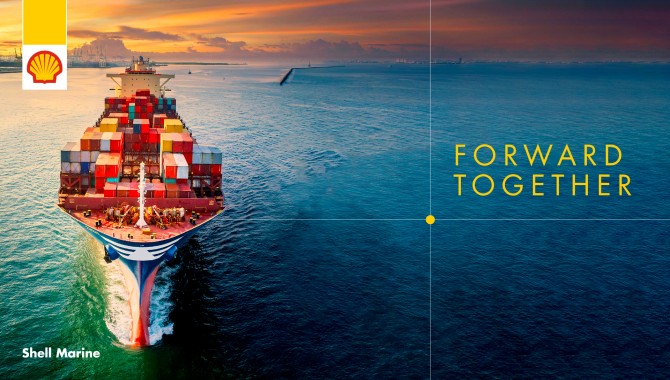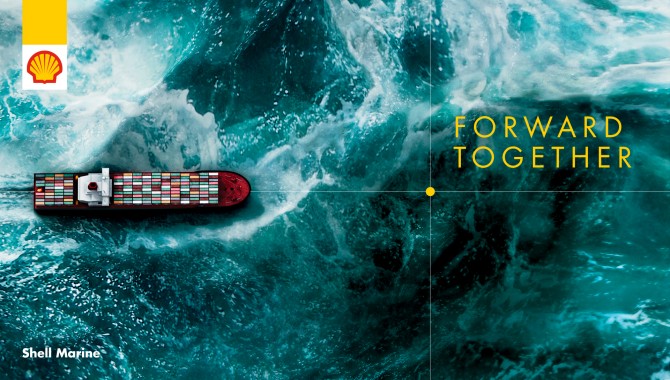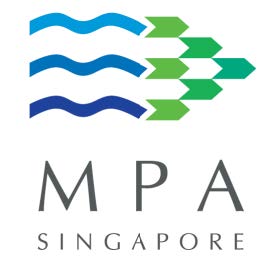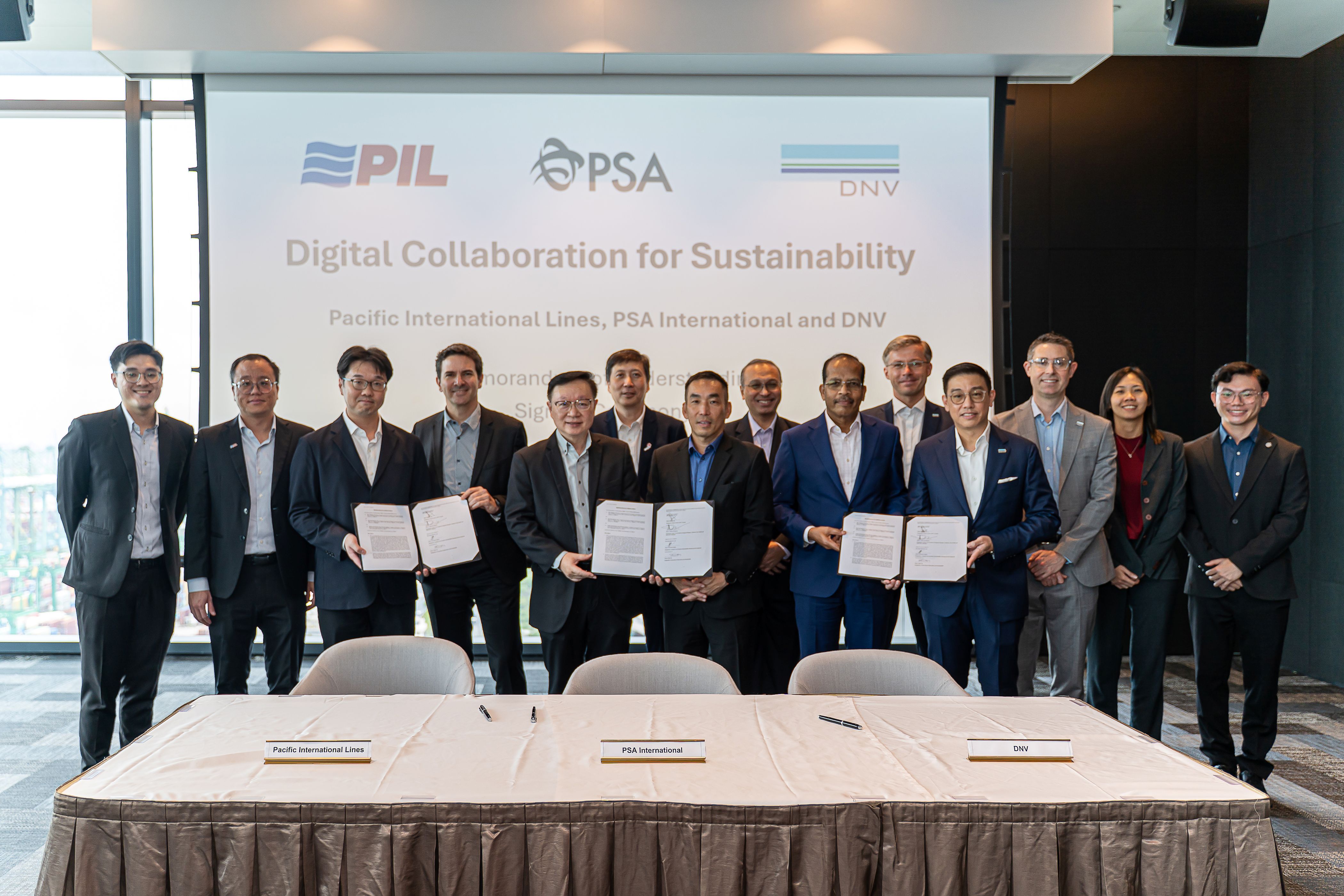When thinking of marine lubricants, there's a popular saying: If the bunker oil is the ship's "food", the lubricating oil is its "blood". This reflects the importance of lubricating oil in the ship. In the past few years, the Marine lubricating oil market has encountered new challenges and opportunities. The arrival of the 2020 IMO sulphur cap, as well as the green and intelligent shipping, all affect the the development of Marine lubricating oil. As the leader in Marine lubricants, how does Shell Marine respond to these problems? How could Shell Marine seize the opportunity in the challenge and better serve the customers?
Jason Ho
"I'm Jason Ho, Shell Marine Lubricant's Regional Director of North Asia, which means I'm in charge of commercial P&L deliverables across China Mainland, Hong Kong China,Taiwan China, Japan and Korea. Before that, I held General Manager roles for Shell in both China Mainland and Hong Kong China."
"I first joined Shell around 28 years ago, having graduated from the University of Technology, Sydney, where I studied Mechanical Engineering. I've since earned an MBA from the University of Hong Kong and now live with my partner and son in Shanghai, where I enjoy driving and playing sports during what free time the busy marine sector affords me!"
Q1. Xinde Marine News: Please introduce the business of Shell Marine lubricants in North Asia.
Jason Ho
Given its economic growth and opportunities, North Asia – covering Greater China, Japan and Korea – is a key region for the Shell Marine Lubricants business. And as a renowned hub for shipbuilders, accounting for roughly 90% of global newbuilds, it is an extremely exiting region to work in.
As such, we are proud to be a leading player amongst international seafaring vessels and across the local marine sector here, where we work with shipyards on their inland vessels lubricants consumption. Looking ahead, we aim to double our market share come 2025, by: maintaining our position as a major supplier; continuing to understand international business partner needs; recruiting new mega distributors; and exploring new growth segments.
As North Asia Regional Director of Shell Marine Lubricants, I lead commercial P&L deliverables across China Mainland, Hong Kong China, Taiwan China, Japan and Korea. In this region, Shell provides access to an extensive portfolio of quality-assured lubricants and chemicals for all vessel types, covering both engines and on-board equipment, in addition to a range of digital and technical services.
 Q2. Xinde Marine News: What opportunities and challenges has Shell Marine Lubricants encountered in recent years? How did Shell Marine respond to them?
Jason Ho
Q2. Xinde Marine News: What opportunities and challenges has Shell Marine Lubricants encountered in recent years? How did Shell Marine respond to them?
Jason Ho
Shell's main challenges in the shipping sector centre on the challenges faced by our customers – many of which are influenced by the type of engine on board each ship. After all, this is what dictates the fuel being used and, in turn, the challenges that a marine lubricant will face. It is therefore vital for ship owners and operators to understand the requirements of fuels and their complementary lubricant products – which is where Shell can help.
What's more, as engine technology evolves to deliver even higher efficiencies with very low to zero-sulphur fuels – following the IMO 2020 sulphur cap – fuel suppliers like Shell need to continue developing lubricants that can cover multiple bases, as we have achieved with Shell Alexia 40 XC. This means keeping operating factors like increasing pressure, temperature and cleanliness top of mind.
In addition, we are seeing intelligent monitoring coming further to the fore in order to meet the engine-fuel combinations that will be needed to decarbonise shipping. It's why manufacturers are aligned on the need for constant lubrication monitoring to establish baselines that can help operators guarantee optimal cleanliness performance.
Q3. Xinde Marine News: Since Shell Alexia 40 XC was launched last year, how has it performed in the market? What problems did the new products solve for shipowners?
Jason Ho
The launch of Shell Alexia 40 XC has been very encouraging, because it helps solve an immediate issue.
Since the International Maritime Organization's (IMO) 0.5% sulphur limit came into effect on January 1, 2020, MAN Energy Solutions (MAN ES) has defined two performance categories for the lubricants used in its two-stroke engines. Existing lubricants, known as Category I, are available for use on the MAN ES Mark (Mk) 8 and earlier engines, while a higher Category II standard has been set for Mk 9 and later engines.
The development of Shell Alexia 40 XC – which has received a full No Objection Letter (NOL) from MAN ES, confirming the successful completion of the full approval process – is the product of close collaboration between Shell R&D and MAN ES in light of these changes.
As a result, it means customers only need to use one lubricant instead of switching back and forth between 40BN and 100BN lubricating products, while providing them with an oil that is both miscible and compatible with cylinder lubricants across the Shell portfolio.
Significantly, Shell Alexia 40 XC is approved for use in all low-speed, two-stroke engines designed by MAN ES and highly recommended for MAN ES B&W two-stroke engines that are Mk 9 and above. It is also compatible with all two-stroke engines using <0.5% sulphur fuels, including VLSFO, ULSFO, distillates, LNG and biofuels.
Much of which comes down to reliability and cleanliness. While previous generation (Category I) low-base number products did not perform well in terms of keeping the engine clean, Shell Alexia 40 XC is more than 30% cleaner than Category I BN40 cylinder oils, with equal cleanliness to Category II BN100 oils. This means less frequent overhauls are required and lower maintenance costs incurred. Meanwhile, it’s acid-neutralising properties support prolonged component life, helping to minimise deposits and control wear in relation to pistons, ring grooves and cylinder liners.
Finally, due to the introduction of high-quality, effective lubrication, crew should have greater capacity to optimise their lubrication feed rate. A lower feed rate often means lower lubricant costs, though there is a fine balance to be struck between cost reduction and reliability – which Shell Alexia 40 XC can help operators to find.
Q4. Xinde Marine News: With the emergence of alternative fuel ships, what changes will happen to the shipping industry's demand for marine lubricants?
Jason Ho
The emergence of future fuels will not alter the core role of lubricants, which is to prevent corrosive, adhesive, or abrasive wear and keep engine parts clean by preventing deposit build-up. However, future fuels are expected to increase the complexity of marine lubrication's role, simply because lubricant specifications in engines using these fuels are still unclear.
Demand therefore will remain, though lubricants themselves may change. However, while every engine-fuel combination has its own challenges, there are several common factors that are driving lubricant developments. These include increased thermal stress and a higher risk of deposit build-up, making cleanliness performance increasingly key.
 Q5. Xinde Marine News: What will Shell Marine Lubricants do to promote the decarbonization transition?
Jason Ho
Q5. Xinde Marine News: What will Shell Marine Lubricants do to promote the decarbonization transition?
Jason Ho
At Shell, we are constantly innovating, so that we – and our customers – can meet the challenges posed by decarbonisation. As I've already touched on, the development of Shell Alexia 40 XC – in response to the IMO's sulphur cap – epitomises this process by using a proprietary and unique formulation, developed by Shell Marine's in-house Research & Development (R&D) team, to respond to shipping's decarbonisation journey.
However, we also advocate for a wider, three-part approach to decarbonisation that first involves avoiding unnecessary emissions – and costs – by using technical and digital services that provide the data or trends needed to identify when vessels are overlubricating or lifting inefficiently.
Next, we encourage the reduction of emissions – and therefore the carbon footprint of your supply chain – by choosing a partner that is committed to manufacturing and delivering products with fewer emissions and less waste.
Finally, to deal with unavoidable emissions, offsetting through high quality, independently verified carbon credits can be useful. And, of course, it's always necessary to respond to regulatory changes as the industry progresses to a lower-carbon future – all without compromising on engine reliability.
Given that no single company can reach net zero alone, we underpin this approach with a strong bias for collaboration – which is why Shell works with partners across the entire marine ecosystem. For example, the MarHySafe project – a DNV-led consortium of 26 leading companies and associations (including Shell) – launched the 'Handbook for Hydrogen-fuelled Vessels' to address uncertainties surrounding hydrogen as a marine fuel. Meanwhile, the MarHySafe joint development project (JDP) aims to create a knowledge base for safe hydrogen operations in shipping. Ultimately, this collaborative approach will be necessary to accelerate the industry's energy transition as we look ahead to a lower-carbon future.
Q6. Xinde Marine News: As a marine lubricants supplier, which alternative fuels do you prefer? Which alternative fuel poses the least challenge and impact on marine lubricants?
Jason Ho
It isn't necessarily about which fuel we prefer as much as it is about which fuel – or, rather, fuels – will be needed to help the shipping transition to a lower-carbon future. After all, there is no single fuel, technology or solution that can address the challenge of decarbonising shipping on its own. And, at present, no fuel alternative has the same scale, energy density, comparative cost, and therefore competitiveness, as fuel oil.
Ultimately, we expect different ship types or shipping sectors to transition from today's fuel oil to a range of zero-carbon fuels as they move through the energy transition. At Shell, we refer to this as the 'fuels mosaic' and, as we gain greater clarity on the availability and practicality of options within this mosaic, we increasingly propose solutions to customers based on their sectoral context, operating environment and specific needs.
We therefore look at shipping's decarbonisation – and the solutions required – through a lens of fuel and technology pathways, broken down by segment, stages and engine type. Because, the type of fuel that you use will dictate the challenges that your marine lubricant will face.
From the perspective of lubricating oil, we measure the parameters of various marine engines and the condition of the cylinders. What kind of fuel and engine determines what oil is used and how it is used. At the same time, we properly monitor the cylinder status, draw trend line charts, and quickly identify possible problems with the ship's engine during fuel switching.
All of which is a detailed way of saying that we're continuing to monitor the situation and developing solutions that can help the shipping industry to operate more efficiently and more effectively, whatever the operating environment.
 Q7. Xinde Marine News: Shell LubeMonitor is a digital service solution that can monitor the lubrication status of the engine. Could you please introduce the working principle? Also, how will shipowners benefit from this technology?
Jason Ho
Q7. Xinde Marine News: Shell LubeMonitor is a digital service solution that can monitor the lubrication status of the engine. Could you please introduce the working principle? Also, how will shipowners benefit from this technology?
Jason Ho
Detailed monitoring of specific engine performance markers and characteristics is becoming ever more important for operators. Because, whether related to loading, contamination, wear debris, or lubrication (i.e., a lack of base number), most machinery failures can in fact be avoided by regular sampling and structured data management.
In this vein, Shell LubeMonitor is a cylinder condition monitoring programme for two-stroke engines that also includes access to Shell tools and advice. However, Shell LubeMonitor goes beyond traditional cylinder condition monitoring by combining on-board testing with laboratory analysis.
All of which can help operators to strike and maintain an acceptable balance between cylinder oil costs and wear-related cylinder maintenance expenses, through sweep tests, feed rate optimisation and cylinder condition monitoring.
Acting as an all-in-one engine monitoring solution, it supports operators with decision making, saving money and increasing efficiency. Therefore, by providing the ability to identify key insights and track long-term trends, the right engine monitoring application can work alongside lubricants to ensure operations are aligned with OEM recommendations.
Q8. Xinde Marine News: To achieve a more optimized supply of marine lubricating oil for shipowners, what digital solutions does Shell have at present?
Jason Ho
We have found that our products are only useful to our customers if they are on the ship, not trapped on land. However, increasingly disrupted supply chains and volatile material supply is making this more difficult than ever.
To overcome these challenges, we have developed a digital solution called Shell Accuport. By calculating ship engine requirements and analysing what's left on board, we can ensure customer needs are met with our inventory. Therefore, we not only help our customers purchase our products more efficiently but also help them manage their inventory more strategically.
Once we have successfully delivered the product to the ship, we can then monitor the performance and condition of the ship's engine through the ship's lubricating oil. To do this, we have Shell LubeMonitor.
Shell LubeAnalyst, a lubricant condition monitoring solution that helps ensure ship engines and lubricants are in top working order by identifying potential oil or equipment failures before they become serious.
Ultimately, whether purchasing fuels, lubricants or digital and technical services, it’s important for ship owners and operators to be able to rely on their industry partners. By working with an expert like Shell – with the requisite scale, knowledge and solutions – they can manage complexity while optimising operational efficiency and lowering total cost of ownership.
Source: Xinde Marine News




 Baltic Exchange launches new Fuel Equivalence Conve
Baltic Exchange launches new Fuel Equivalence Conve  21 Consecutive Years of QUALSHIP 21 Recognition for
21 Consecutive Years of QUALSHIP 21 Recognition for  MPA and Wärtsilä Renew Partnership to Drive Marit
MPA and Wärtsilä Renew Partnership to Drive Marit  MPA and Dalian Maritime University Renew Partnershi
MPA and Dalian Maritime University Renew Partnershi  PSA INTERNATIONAL, DNV AND PACIFIC INTERNATIONAL LI
PSA INTERNATIONAL, DNV AND PACIFIC INTERNATIONAL LI  INTERCARGO Reaffirms Call for Simplicity as IMO Cli
INTERCARGO Reaffirms Call for Simplicity as IMO Cli